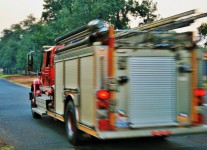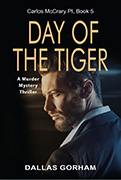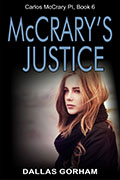Use powerful verbs and descriptive nouns

Every experienced writer has heard the advice to use action verbs. This also includes the advice to avoid adverbs and adjective. Instead, choose verbs and nouns that are more descriptive by themselves. For example, don’t say “She walked proudly down the street.” Say “She strutted down the street.” Don’t say, “He opened the car door quickly.” Say “He jerked the car door open.”
Most best-selling authors are masters of the action verb and the descriptive noun.
Take Lee Child for instance. Here’s an example of his from Chapter 33 of Die Trying, the second Jack Reacher novel: “The air force Bell put down on a gravel turnout two hundred yards south of where the road into Yorke narrowed and straightened into the hills. [emphasis supplied.]”
Mr. Childs could have said: “The air force helicopter landed on a gravel turnout two hundred yards south of where the road into Yorke dropped to two lanes and turned into the hills.”
But Child used more expressive verbs.
Here’s another example from the same chapter: “A random pattern of military vehicles slewed across the blacktop. [emphasis supplied.]” He could have said: “A random pattern of military vehicles sped across the blacktop.” But
Child used the more expressive “slewed.”
Another: “An officer slid out… saluted the General and skipped around to open all the doors. The five men squeezed in and the car turned again and rolled the two hundred yards north to the mess of vehicles.” Another writer might have said, “An officer got out… saluted the General and hurried to open all the doors. The five men got in and the car turned again and drove the two hundred yards north to the mess of vehicles.”
And note Child’s choice of “mess” for the grouping of vehicles. Even nouns can be made more descriptive without adding an adjective.
Small, insignificant differences? Small, yes. Insignificant, no. Small differences can turn a pretty good story into an excellent one.
Here’s an example from chapter 8 of Invisible, by James Patterson and David Ellis: “I pop awake, gasping for air, the dancing flames on the ceiling receding to a dark, quiet room. [emphasis supplied.]” The protagonist didn’t “wake suddenly”; she “popped.”
A good writer can even draft a noun like “bucket” and convert it to a verb. An example from chapter 1 of The Escape, by David Baldacci: “When the two rampaging fronts met…, the result was a storm of shattering proportions, with jagged lightning slicing sideways…, rain bucketing down….” I loved the use of “slicing” to describe the lightning.
Here’s how I used these principles in my third Carlos McCrary novel, Quarterback Trap:
Old: A green Mercedes approached the main garage exit.
Improved: A green Mercedes rolled to a stop at the garage exit.
Old: We waited until the last of the cars had driven off the ferry.
Improved: We waited until the last of the cars had bumped off the ferry.
Old: I started the engines, then called Flamer while they warmed up.
Improved: I cranked the engines, then called Flamer while they warmed up.
Old: The B-r-r-r-rap of automatic weapon fire came from the sun deck.
Improved: The B-r-r-r-rap of automatic weapon fire ripped from the sun deck.
Old: I closed the door behind the two Port City detectives….
Improved: I bolted the door behind the two Port City detectives….
Old: I picked up Pisarczik’s AK-47…. Improved: I grabbed Pisarczik’s AK-47….
Even staid, ordinary nouns can be punched up.
Old: The sound of Bob opening his bedroom door woke me.
Improved: The click of Bob opening his bedroom door woke me.
“Click” is more descriptive than “sound.” Exciting, expressive verbs and descriptive nouns add that extra oomph to writing.










